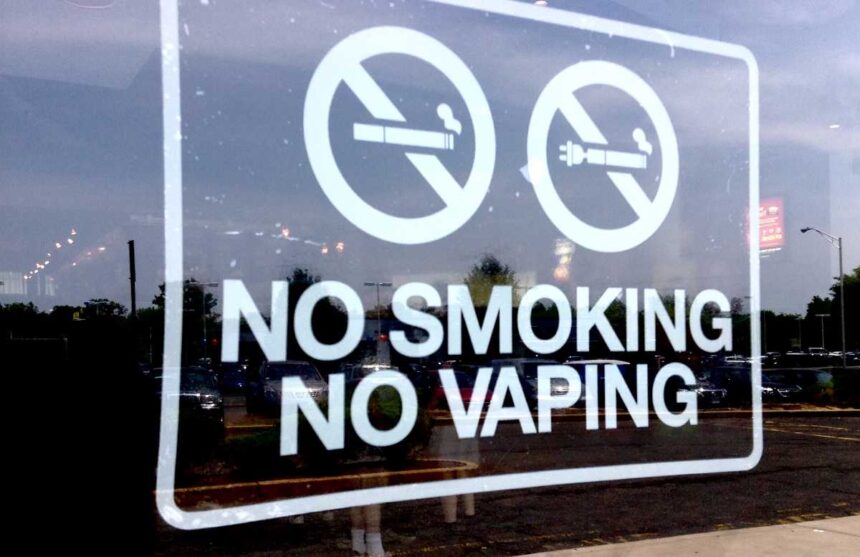Thailand’s stringent prohibition on vaping products that contain nicotine, which has been in place since 2014, has been hailed by authorities as a necessary step to protect public health, particularly among youth. However, a closer examination reveals that this prohibition may have more negative effects on consumers and the public health community as a whole than positive ones.
In their article “Thailand’s Nicotine Vape Ban Harms Consumers and Public Health,” the Consumer Choice Center (CCC), a global advocacy group that supports harm reduction, argues persuasively that this widespread ban ignores scientific evidence, fuels a dangerous black market, and deprives smokers of a tried-and-true method of reducing health risks.
The Scientific Foundation of Harm Reduction Ignored
The obvious evidence that vaping is a less dangerous option than smoking burning tobacco forms the basis of the conversation. According to credible university research, e-cigarettes are up to 95% less harmful than traditional cigarettes, including studies from Public Health England.
Since vaping eliminates the combustion process that produces tar and numerous carcinogens, which are the primary causes of smoking-related illnesses like heart disease and lung cancer, this statistic should serve as a wake-up call for Thailand, as smoking-related diseases claim the lives of over 81,000 people annually. However, the government’s complete ban on vaping disregards this information and prevents smokers from having more sensible options for reducing harm or quitting.
The CCC highlights how harm reduction has been successfully implemented in countries like the UK and NZ, where regulated vaping has significantly reduced smoking rates. Thailand’s policy, on the other hand, forces smokers to either continue using deadly cigarettes or turn to unregulated alternatives.
In addition to compromising individual choice, this denial of vaping’s potential as a cessation aid contributes to a public health crisis that could be mitigated with fact-based strategies.
A Lucrative Underground Market
One of the most evident consequences of Thailand’s ban on vaping is the development of a flourishing black market. Despite being prohibited, vaping products are easily found online, in stores, and on street corners. According to the CCC, this unregulated underground economy, which is estimated to be worth billions of baht, offers no assurance to consumers regarding the safety or quality of its products.
Thailand’s illegal vape trade exposes consumers to potentially dangerous chemicals, in contrast to regulated markets where standards ensure that e-liquids are free from harmful contaminants and devices meet safety criteria.
The government’s stated goal of protecting youth is also jeopardized by this unregulated market. Children can more easily obtain vaping products from black market vendors, who rarely impose age restrictions.
These products are typically presented in visually appealing ways, such as “toy pods” that imitate cartoon characters. Instead of decreasing youth vaping, the ban has created an environment where these products proliferate unchecked, underscoring the policy’s inability to achieve its stated objectives.
Police extorting tourists
Criminalization of Consumers Supporting Thailand’s harsh anti-vaping laws, which include fines of up to 30,000 baht (roughly $900 USD) and jail sentences of up to 10 years, worsens the harm done to customers. Instead of assisting people in selecting safer alternatives to smoking, these harsh regulations penalize those who seek them out.
Prominent instances, such as police extorting tourists for possessing vape pens, demonstrate how the ban encourages corruption and unjustly penalizes people who are unable or unwilling to abide by the law.
Thai smokers are denied access to a smoking cessation tool that many people worldwide have used because of the prohibition. The CCC emphasizes the proven effectiveness of vaping as a smoking cessation aid, frequently outperforming traditional nicotine replacement treatments like patches or gum.
By denying smokers this option, Thailand’s policy essentially keeps them stuck in a vicious cycle of combustible tobacco addiction with all the associated health risks.
A Lost Economic Opportunity
The CCC highlights that, in addition to health risks, legalizing and regulating vaping could benefit Thailand’s economy. A regulated market would create jobs, generate tax revenue, and lessen the financial burden of smoking-related medical bills.
Instead, the ban transfers money to illegal operators, depriving the government of funds that could be allocated to public health initiatives. If Thailand were to reverse its stance, it could emulate other nations that have accepted vaping as part of a harm reduction strategy, which have shown both financial and health benefits.
The Future: Regulation, Not Prohibition
The CCC backs a reasonable alternative to Thailand’s current policy: a regulatory framework that balances public health goals with consumer rights. This would entail setting quality standards for vaping products, restricting sales to minors, and educating the public about the relative risks of vaping versus smoking.
A strategy like this would protect vulnerable groups and empower adult smokers to make informed decisions. Eliminating the black market would also be aided by bringing vaping into a regulated, legal setting.
Thailand’s 2022 legalization of cannabis demonstrates its capacity to adjust laws in response to data and popular demand. Instead of being a cautionary tale of prohibition gone wrong, adopting a similar mindset toward vaping could help the country lead harm reduction in Asia.
The CCC argues that it is a disservice to Thai people to uphold an outdated ban in the face of scientific consensus and real-world outcomes.
Despite being enacted with the intention of safeguarding public health, Thailand’s ban on nicotine vapes has actually backfired. By disregarding harm reduction science, encouraging a dangerous black market, and penalizing rather than assisting consumers, the policy harms both individuals and society as a whole.
A crucial fact is highlighted by the Consumer Choice Center’s criticism: prohibition is not the answer. A regulated vaping market could improve public health, reduce smoking rates, and align Thailand with global best practices. For the sake of the millions of smokers who deserve a safer alternative, policymakers ought to reevaluate this failed experiment and prioritize evidence over ideology.
Related News:
Police Take Down Illegal Vaping Store in Chiang Mai Seizing Bt10 Million in Merchandise

Geoff Thomas is an award winning journalist known for his sharp insights and no-nonsense reporting style. Over the years he has worked for Reuters and the Canadian Press covering everything from political scandals to human interest stories. He brings a clear and direct approach to his work.














